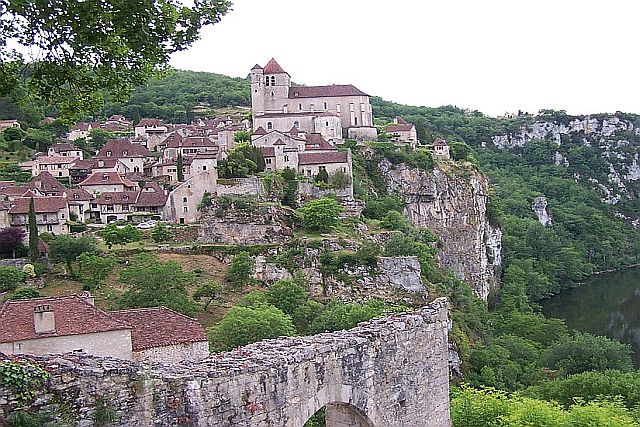 |
| A quaint quiet street in Flavigny-sur-Ozerain where much of the movie Chocolat was filmed (wikipedia) |
Both places are members of an
organization called “The Most Beautiful Villages in France
 |
| Outskirts of Peyre, France (wikipedia) |
Travelers will be thrilled to
discover that there are more than 150 other “undiscovered” villages throughout
France that are now part of an internet site called Les Plus Beaux Villages de France.
This
site traces its roots to 1981 when Charles Ceyrac, the mayor of Collonges-la-Rouge,
found a book published by Reader’s Digest
which had the same title as the current name of his organization, Les Plus Beaux Villages de France.
Ceyrac had long been an
advocate of promoting tourism to exceptional villages throughout France
Several categories for
inclusion were established ranging from history to art, handicrafts, culinary
excellence, romantic environment, wellness and nature.
 |
| Saint Cirq Lapopie nestles behind its ancient city walls (wikipedia) |
By March of 1982, an organization of 66 mayors
had united with Ceyrac to establish a method of preserving the legacy of each
town. Its purpose was “to avoid certain pitfalls such as villages turning into
soulless museums or, on the contrary, ‘theme parks.’ Our well-reasoned and
passionate ambition is to reconcile villages with the future and to restore
life around the fountain or in the square shaded by hundred-year-old lime and
plane trees.”
In an effort to regulate a
high level of quality so that visitors would be guaranteed to enjoy the type of
traveling experience they were seeking, Les
Plus Beaux Villages de France follows a strict set of guidelines during its
selection process.
Membership is granted only
after a community has completed four phases of application.
 |
| Entrance to the village of Flavigny-sur-Ozerain (wikipedia) |
Initially a village must meet
three basic requirements: the population must not exceed 2,000 people, it must
have at least two protected sites or monuments in the area, and it must show
written proof that there is majority support from the town council.
Once approved, an on-site
evaluation is conducted between a member of the association and the mayor of
the village. Prior to the “tour” of the town, the mayor, and any associates he
chooses, are interviewed and are requested to present required documents for
evaluation along with any support materials.
The association then follows
an appraisal chart consisting of 27 criteria that rate the village according to
the various categories necessary to participate.
 |
| Half timbered houses of Le Bec Hellouin in Normandy (wikipedia) |
Phase three consists of a
decision handed down by the Quality Committee which has complete authority in
accepting or rejecting an application. The Quality Committee meets twice each
year, and it has the option of making four rulings ranging from immediate recognition
as a participating member to total rejection.
If approved, the final step
is signing an official charter. Once granted, the village may then promote its
new designation to inhabitants, local authorities and the media as being
officially regarded as one of the Most Beautiful Villages of France
 |
| Beynac-et-Cazenac rises above the Dordogne River in France (wikipedia) |
Today there are more than 157
villages in 21 regions of the country.
“Discovering France
For more stories and tour itineraries, visit: www.MagellanTravelClub.comwww.MagellanTravelClub.com
No comments:
Post a Comment